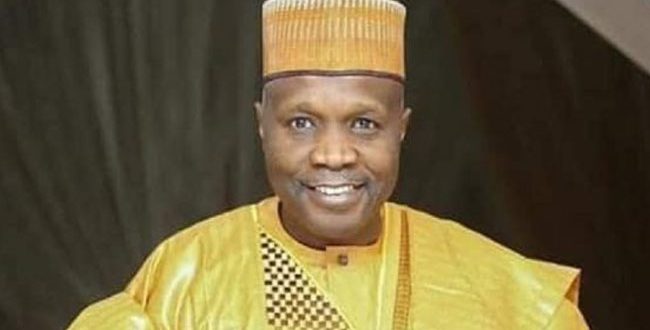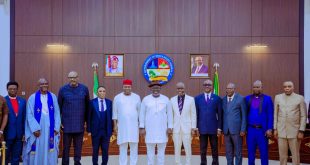Gombe State Governor Muhammadu Yahaya has called on Muslims across Nigeria to reflect on the teachings of Prophet Muhammad (SAW) as they celebrate this year’s Eid-el-Maulud.
In a message released by Ismaila Misilli, Director-General of Press Affairs at the Gombe Government House, Yahaya station lo qed the need to integrate the values of tolerance, humility, modesty, and honesty into daily life.
Governor Yahaya, who also serves as Chairman of the Northern States Governors’ Forum, urged Nigerians to use the Prophet’s teachings as a guide to promote peace and unity in the country. He stressed that Prophet Muhammad’s legacy of peaceful coexistence and love for one’s neighbor should be the foundation for building a harmonious society.
“As we commemorate this sacred occasion, I urge us all to integrate the teachings of the noble Prophet into our lives. His legacy of peaceful coexistence, integrity, and love for one’s neighbour should be the foundation for building a harmonious society,” said Yahaya.
He also highlighted the importance of the Prophet’s values in national development, particularly in fostering unity among Nigeria’s diverse population.
“The lessons from the life of Prophet Muhammad (SAW) are crucial in the pursuit of meaningful progress and the proper management of our country’s rich diversity,” the governor added.
Governor Yahaya called on Nigerians to use the occasion of Eid-el-Maulud for spiritual renewal and prayer, especially during the country’s current challenges. “This celebration should remind us to come together as one in prayer and action for the unity, stability, and progress of Nigeria,” he stated.
He praised the people of Gombe State for maintaining peace and stability in the region, urging them to continue being law-abiding citizens. “We must protect the peaceful atmosphere we enjoy in Gombe and avoid actions that may threaten our harmony,” Yahaya said.
The governor concluded by expressing confidence that with collective faith and sustained prayers, Nigeria would achieve the vision of its founding fathers, especially in terms of peace and development.
By Alimi Micheal
 National Telescope national telescope newspaper
National Telescope national telescope newspaper



